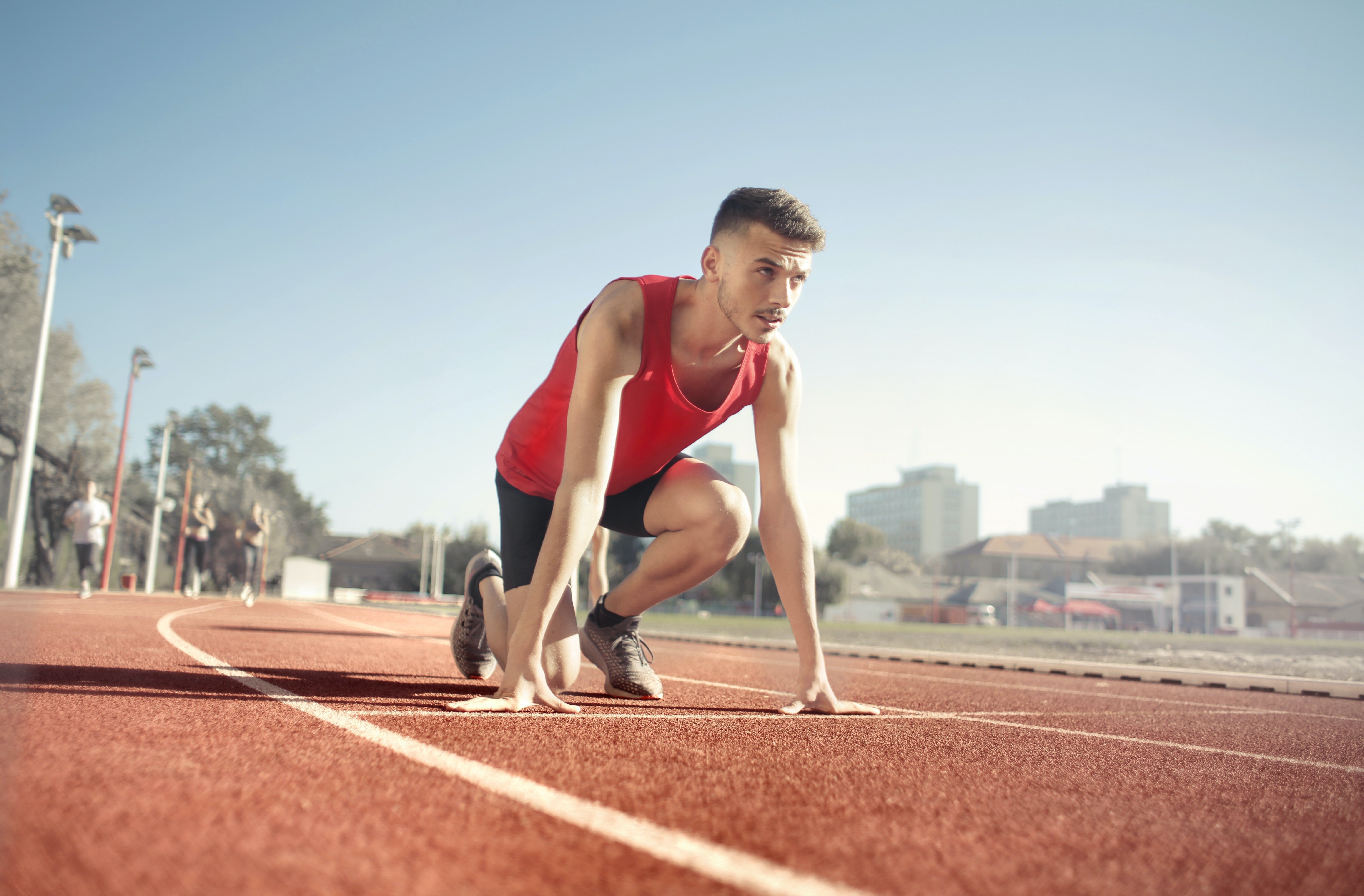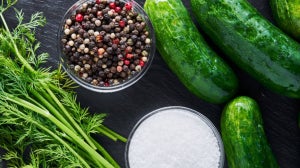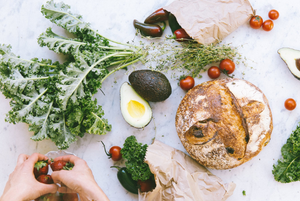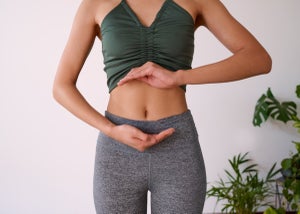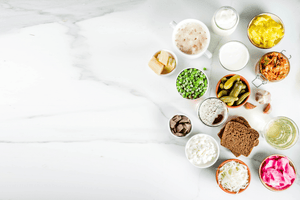
- Prebiotics feed the beneficial bacteria in your gut, helping to maintain gut health.
- Taking just 20g of protein supplements could be reducing the number of beneficial bacteria in your gut.
- Beneficial gut bacteria may help reduce the build-up of lactic acid during exercise, improving endurance.
- Scientist and long-distance runner, Dr Lucien Harthoorn, reveals how Bimuno® has helped support him in his athletic endeavours.
In sports, your body needs to be in peak condition to get the competitive edge - supporting your gut microbiome could mean the difference between a good performance, and a great one. Ensuring your diet is packed with naturally occurring prebiotics, and bridging any potential gap by taking Bimuno® prebiotic supplements, might be what your body needs to succeed.
Grow your own: prebiotics promote probioticsWe’ve all heard of probiotics, the “good” bacteria that live in your gut – they come to us via food and there are supplements available which can help you increase how many you take in. They help regulate the immune system and aid digestion – but when ingested they don’t survive well in the body, hence you need a high intake to see any benefit from taking them at all.
Prebiotics can help you get the most out of the beneficial bacteria in your gut – they’re a type of complex carbohydrate that feeds the ‘good’ bacteria, helping them to grow and multiply.
Bimuno® is a unique prebiotic fibre that contains galactooligosaccharides(GOS) which helps to stimulate the growth of beneficial bacteria in the gut.
In sport, your gut mattersNutrition has long been acknowledged as a crucial ingredient in sporting success but taking care of your gut – alongside a nutritionally optimised diet – should be a feature in every athlete’s health arsenal.
- Approximately 70% of the immune system is within the gut. Athletes’ immunity can worsen as a result of excessive training, stress, disturbed sleep and environmental extremes. [1]
- A healthy gut microbiome can support your cognitive performance, improving memory and focus[2] - essential for many endurance and team sports.
- Studies have found that a strain of healthy bacterium (Veillonella) found in the gut may help with processing lactate. That means a reduction in the build-up of fatigue-causing lactic acid.[3]
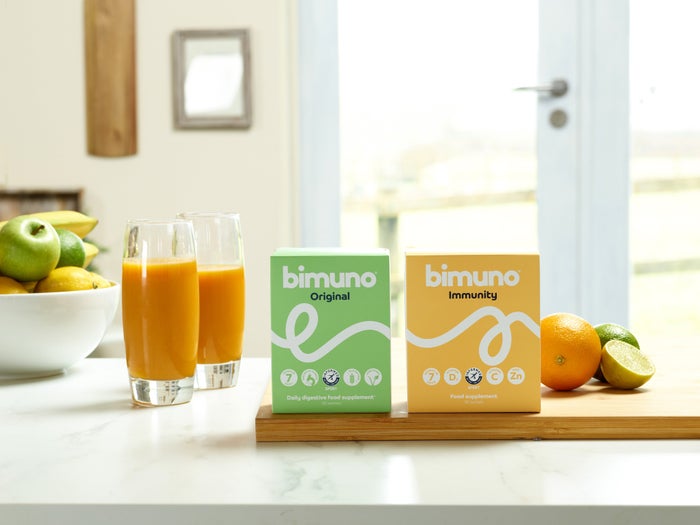
Studies have suggested that even a slight increase in protein intake, like 20g of protein supplementation in athletes, decreases health-promoting bacteria in the gut.[4]
Bimuno® Research and Development Director, Dr Lucien Harthoorn, explains how you can counteract the potential impact of protein supplementation on your gut:
‘When starting a new exercise regime, you may focus on increasing your protein intake and forget about your fibre intake. This can put pressure on your gut microbiome.It’s important to look after your diet and ensure that you are still meeting the recommended fibre intake. If you struggle with this through diet alone, taking a supplement like Bimuno® can bridge that gap to help you meet your goals.’Working out in the heat – how a healthy gut can help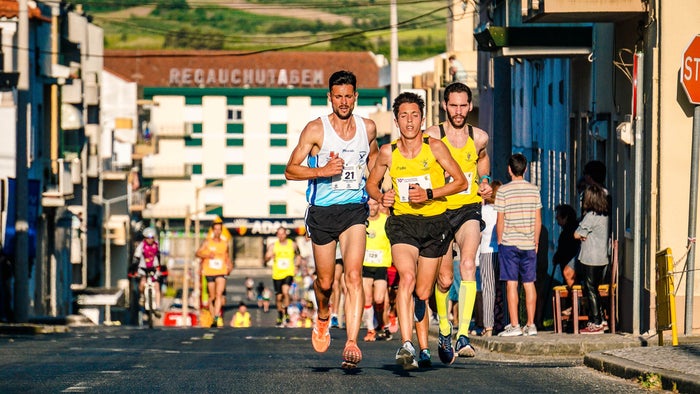
Considering heat and hydration are crucial when exercising in higher temperatures.
Dehydration can have a markedly negative effect on your athletic performance, potentially also causing:
- Gastrointestinal (GI) complaints[5] such as bloating, diarrhoea and flatulence
- Prolonged recovery times[6]
- Reduced endurance[7]
- Increased risk of heat stroke and heat exhaustion[8]
Dehydration isn’t just about water, however. Fibre influences how food and water move through the body and can help prevent excessive water loss.
Dietitian, Laura Tilt, explains how fibre works in the body:
‘When it comes to feeding your gut microbes, fibre is arguably the most important nutrient you can consume. Fibre is the name for carbohydrates which are not broken down or absorbed by humans, which means that they move through the gut and land in the large intestine.Some types of fibre help add bulk to our poo, helping with regular bowel movements. Other types of fibre absorb water, helping soften our poo, making it easier to pass. So, all in all, it’s a really important nutrient for gut health.’Case study with Bimuno Original

Training regime: I’m a 50-year-old, a long-distance runner (roughly from 5-20 km) who runs around three times per week. I opt for this type of endurance sport to keep my stamina and overall fitness at a good level at all ages and I occasionally participate in either local or national races. On top of that, I aim to complete two-to-three weight training sessions, but I must be careful not to gain too much muscle as it may impact my running and performance times.
My experiences of taking Bimuno®:I’ve been taking Bimuno Original for two and half years now, and I feel overall very good with it. Before taking the supplement, I suffered from some, but not extensive, gut discomfort (it was mostly irregularity). It even happened to me at a race a few years ago which meant that I had to stop halfway. That’s very frustrating and just the fact that I was worried it could happen, made me feel stressed. Bimuno® helps my bowel regularity and that makes me feel better physically and mentally. This means that I don’t have to worry about sudden bowel movements during runs or workouts.
Lastly, I believe I may have benefited from plugging my daily gap regarding fibre intake by taking Bimuno®. I’m very conscious about eating a healthy diet, but for my weight training, I take protein supplements which can sometimes affect the healthy balance in my gut.

[1] https://jissn.biomedcentral.com/articles/10.1186/s12970-019-0329-0
[2] https://www.ncbi.nlm.nih.gov/pmc/articles/PMC7601389/
[3] https://www.bimuno.com/professionals/athletes-and-the-gut-microbiome.list
[4] https://www.ncbi.nlm.nih.gov/pmc/articles/PMC6521232/
[5] https://link.springer.com/article/10.1007/s004210000305
[6] https://www.gssiweb.org/sports-science-exchange/article/dehydration-and-exercise-induced-muscle-damage-implications-for-recovery#articleTopic_5
[7] https://bjsm.bmj.com/content/47/11/679.long
[8] https://ivrstx.com/2017/08/effects-dehydration-athletic-performance/

